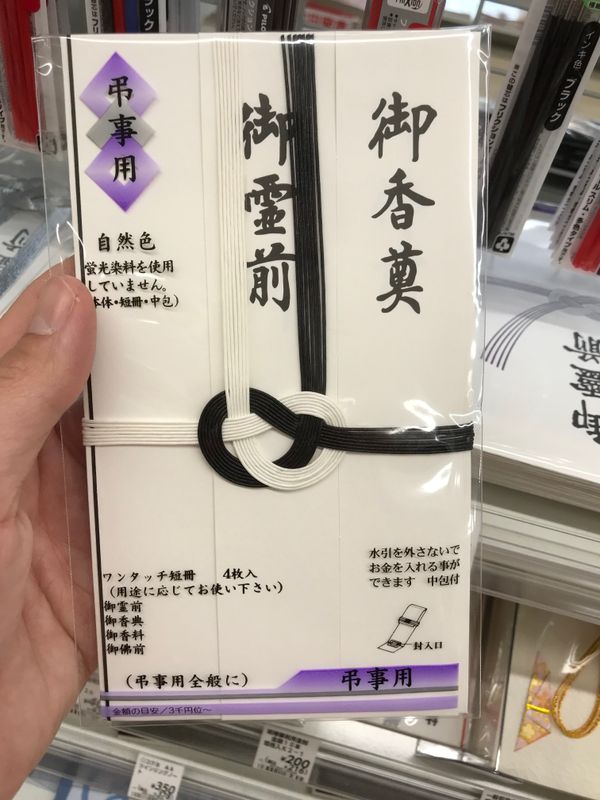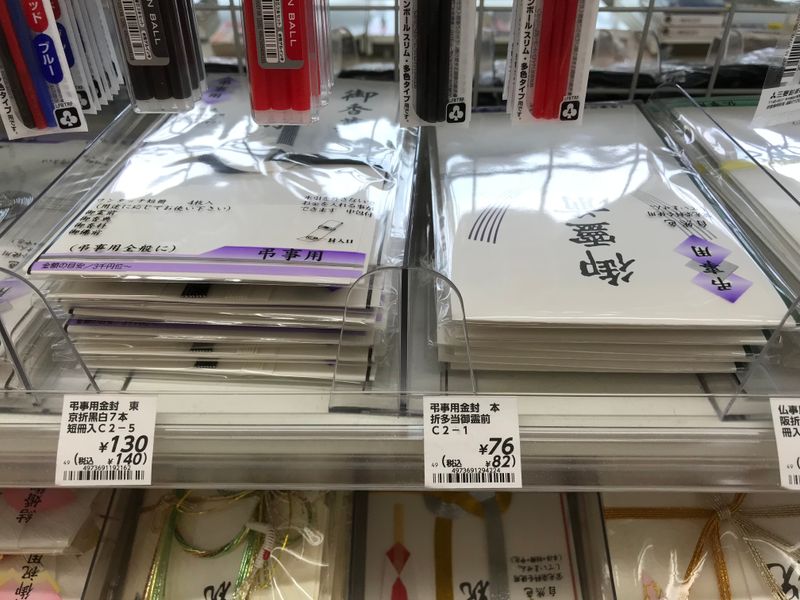Apr 26, 2018
Customs & Traditions: Japanese Wake/Memorial Service
Nobody wants to think about death, but it is inevitable. If you live in Japan long enough, it is also inevitable that you will need to attend a Japanese wake or memorial service whether it's for relatives, coworkers, friends, or neighbors. While some customs are similar to what you would encounter in the States or one of the Commonwealth countries, there are some important customs and traditions I'd like to share with you in order to avoid any awkwardness in an already somber and emotional event.
Funeral, Wake, Memorial Service?
In Japan, there are different ceremonies for commemorating the departed. Unless it is an immediate family member that's passed, however, the ceremony you will likely be invited to will be more reminiscent of a memorial service or wake than an actual funeral ceremony. The information here does not deal with the specific traditions associated with funeral processions, but rather, the types of ceremonies that most expats will eventually (and unfortunately) have to attend.
The Set-up: If the family residence is large enough, the event will be held at their home. The largest room will be set up with places for guests to sit (traditionally in a U shape) with a memorial altar and photo placed at the front of the room. The altar will have a small incense pot. Sometimes the seating will include food settings for attendees.
Attire: Like most western cultures, conservative black attire is appropriate for these events.
Condolence gift: When attending these events in Japan, it is customary to bring a kōden (condolence gift). The gift is always some cash denomination. Unlike weddings and happy events where custom dictates presenting crisp, unused bills, it is appropriate to offer worn bills as a sign of life and death. The amount varies depending on your relationship to the departed; i.e. the closer you were the more you should offer.

You should pick up a traditional envelope for the kōden. While you may want to splurge for something of higher quality that's more personalized, you can find the envelopes at any of the leading convenience stores (Lawson, 7-11, Famima) in the stationery aisle.

The easiest way to distinguish these from the other envelopes is that they will always be black and white, while the ones for weddings and congratulations will be ornate and colorful. If you want to be sure though, look for the label that says, "弔事用."
Procedures:
When you attend the ceremony, a member of the family or a family friend should be present to greet you at the door (or entrance, if at a venue outside the home). You should present the kōden upon arrival.
At that point, you should go to the main room with the seating, and if not directed to a seat, just file in and sit down.
In most situations, attendees will be asked to approach the alter to pay respects. When it's your turn, stop on the way up as you pass the family members where they are sitting, face them, and bow your head. Then proceed to the alter and the incense pot.
Unlike other traditional ceremonies, the incense in memorial services will typically be powder incense, not stick incense. Take a small pinch of incense in between your forefinger and thumb. Bring it up to your forehead while bowing. Then sprinkle it on the pile of burning/smoldering incense (there won't be a flame). Repeat twice more for a total of three times. Finally, bring your hands together as in prayer and bow your head (no clapping).
Once you've done that, just return to your seat. At that point, protocol is done. Just be sure to read the air to get a feel for how to behave from that point, because every family is different in how they wish to memorialize the departed. Some love to let the sake flow while reminiscing about the past, while others prefer to sit in quiet reflection.
Do you have any questions about attending Japanese wakes/memorial services? Any other recommendations? Feel free to use the comments section below!
Hitting the books once again as a Ph.D. student in Niigata Prefecture. Although I've lived in Japan many years, life as a student in this country is a first.
Blessed Dad. Lucky Husband. Happy Gaijin (most of the time).



0 Comments